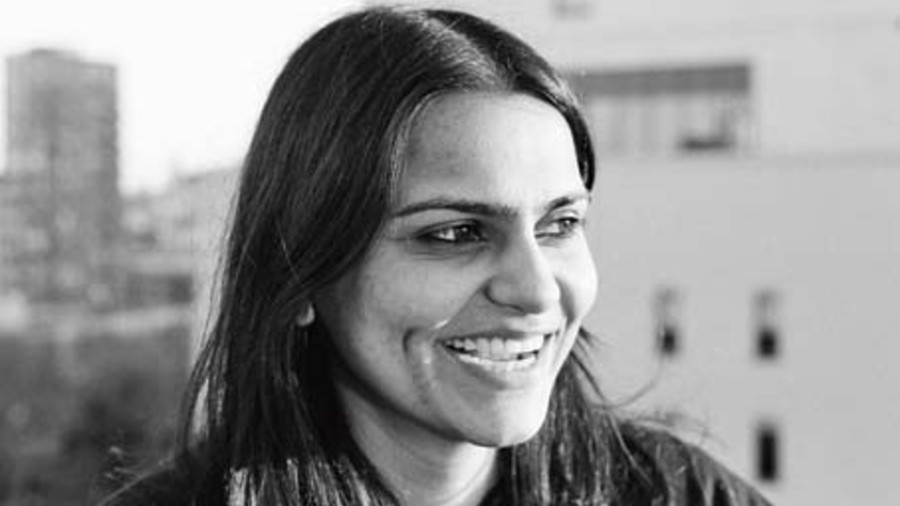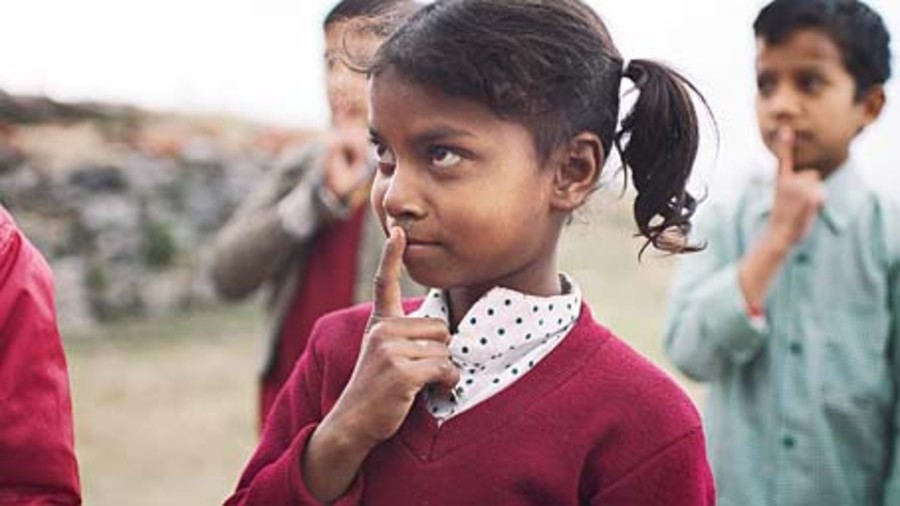Bittu, a 16-minute short film based on the real-life incident of the 2013 mass poisoning of school children in Bihar, seen through the eyes of a young girl called Bittu, has been shortlisted in the Top 10 Best Live-Action Short category at the 93rd Academy Awards. Bittu is being backed by the cinema collective Indian Women Rising, an initiative of producers Ekta Kapoor, Guneet Monga and writer-director Tahira Kashyap Khurrana. A The Telegraph chatwith Karishma Dev Dube, the director of Bittu, on the film.
Bittu was your graduate film at NYU Tisch School of the Arts and was a medal recipient of The Academy of Motion Picture Arts and Sciences 47th Student Academy Award. With the Oscars’ shortlist, would you say that life has come full circle?
I would say the film has travelled further than I could have ever imagined.
What prompted you to tell this story?
The face of a child from the news footage of the true incident. It was angry and resolute, having seen too much. Ultimately, the film became a lot more personal, incorporating elements of my own experiences from boarding school.
Rani Kumari as Bittu holds the narrative together. What went into casting her?
It was the most challenging part of the process, but also the most rewarding.
I began by just introducing myself to communities around our location, and found Rani a few weeks into the process. I had my friend and amazing actor Nirvana Sawhney come help me create a structure of a workshop that would serve as an audition when we were working with a big group of children. We began simply by approaching the communities and government schools close to our location.
Rani emerged from the crowd a few weeks into the process, and we had an instant connection. I decided to focus on going back to the same place, and continued working with her every day from that point on.
We eventually cast Chand from the same community. It was important to me that the two girls had an inherent relationship with each other. I spent two-and-a-half months working with both the girls. I transcribed some of the scenes into street plays, found new ways to make them memorise certain lines that needed to be preserved, and then the work mostly became about reworking the script around who these children were in real life. I didn’t train them in the scenes as much as I worked hard to create a sense of trust between us. It was solely that trust between the girls, me and my sister Shreya Dube, that got us through the toughest days on set.

Director Karishma Dev Dube Sourced by the correspondent
What were the highs and challenges of shooting Bittu?
The challenges were multifold, some stemming from our severe budgetary constraints. Working with kids, shooting back home in India (Karishma is based in the US) with such a big crew, and all outdoors... it was a lot of firsts for me. It felt like the first time I was making a film, I had to leave everything I had learnt in film school behind. But it was super educational, I’ve changed a lot as a director after making this film.
What does it mean for Bittu to be backed by Indian Women Rising?
I feel very grateful. There’s a massive dearth of such support for emerging film-makers in India. I’m very proud to be associated with such an effort.
What is the message that you want the viewer to take back from Bittu?
I don’t know if I can control that beyond a point. My intention was always to give life to people to whom this may have happened to. These people had big personalities, their own dreams, relationships, they were not merely figures in a tragic incident in the papers. I hope the audience leaves with the same sense of anger I had when I set out to make this film. But mostly, I want them to enjoy the performances of these kids. They are brilliant and deserve everything.
If the film does win an Academy Award, what will it mean for you as a film-maker and for Indian cinema at large?
It’s hard to imagine that right now. I hope it at least challenges the assumption that Bollywood is a genre, and that it represents all the films that exist in India. We have a lot of different films in us, and a lot of us are starting to say it exactly the way we want, straying from the syntax and structure that is so beloved within our industry.










